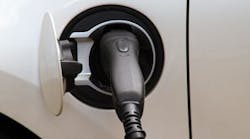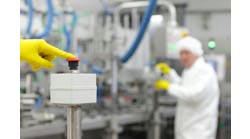Dan Hebert is senior technical editor for Control, Control Design and Industrial Networking. Email him at [email protected] or check out his Google+ profile.
As a technical professional working at a machine or robot builder, one of your main tasks is to apply various current and emerging technologies to improve your company's products. This naturally makes you well aware of the power of technology, and also of its limitations. Unfortunately, the general public and the governments that rule them don't always share your awareness, particularly when it comes to things that technology can't do, such as make a decent battery.
Despite billions of dollars in research expenditures over the past few decades, batteries still can't store significant amounts of electricity for long periods of time at a reasonable cost and efficiency. The goal of a much better battery has been tantalizingly close for decades, but it's never been quite reached, and it never will be because of some of the basic laws of science.
SEE ALSO: Electric Cars Bring Sexy Back
Although a battery looks like a solid-state device, it's instead a miniature and self-contained chemical plant. Unfortunately, that means that it doesn't and can't follow Moore's Law, but instead is limited to increasingly marginal improvements. And, batteries tend to do unpleasant things when pushed to their limits, like catch on fire (see the Boeing Dreamliner's lithium-ion batteries, if you need convincing).
Simply put, "Lithium-ion batteries are the problem child of modern electronics" states Popular Mechanics, with problems that include wear over time and significant degradation of already unacceptable performance. And the problems extend to other applications besides electronics, as many of them use lithium-ion batteries or other battery types that share the same issues.
This has significant implications for electric vehicles and renewable power, two areas where wrongheaded government decisions based on the unattainable goal of a much better battery are costing its citizens billions worldwide each year.
[pullquote]
Forget the electric car, because the batteries never will perform at a level that would allow electric cars to make a significant impact on the motor vehicle industry. Tiny Tesla still is losing money despite a government subsidy of up to $45,000 for each vehicle sold. During a face-to-face conversation with one of Tesla's founders a few years ago, he told me off-the-record that the main problem with the electric car concept was the astronomical cost of its lithium-ion batteries. Despite some cost reductions, the same problem exists today.
The answer to the chronic problem of pollution caused by motor vehicles won't be found with electric cars and better batteries, but instead with other solutions that are being crowded out of the marketplace by government subsidies and mandates for electric vehicles.
Vehicles powered by natural gas are one solution, with both compressed natural gas and liquefied natural gas vehicles up and running, particularly for commercial and industrial use. Natural gas at the moment is about $2 per gallon cheaper than gasoline on a fuel-equivalent basis, and generates significantly lower levels of emissions.
Another great solution being limited by the unattainable chimera of a practical electric car is the hybrid automobile. How many hybrids could be sold in California if politicians could learn just a little science, and remove their truly insane and incredibly expensive mandate that will require one out of seven cars sold in the state to be plug-ins or full electrics by 2025?
Intermittent renewables like land-based wind and solar are fast reaching the limits of their contributions to the electric grid, as the power they produce can't be efficiently stored for times when the sun don't shine and the wind don't blow.
Utilities are expected to provide near 100% backup for renewables in the form of mostly conventional generating sources, such as natural gas-fired turbines, raising the real cost of power produced by intermittent renewables to astronomical levels. That's why wind and solar will continue to require huge subsidies.
But better solutions are already in use, relying on non-intermittent sources of renewable power from tides, waves and offshore wind. The main restraints on the growth of these technologies are the mandates and subsidies for land-based wind and solar.
The bottom line for us all is that batteries aren't going to get much better, and society would be better served by removing government subsidies and mandates for technologies that depend on a much better battery.





